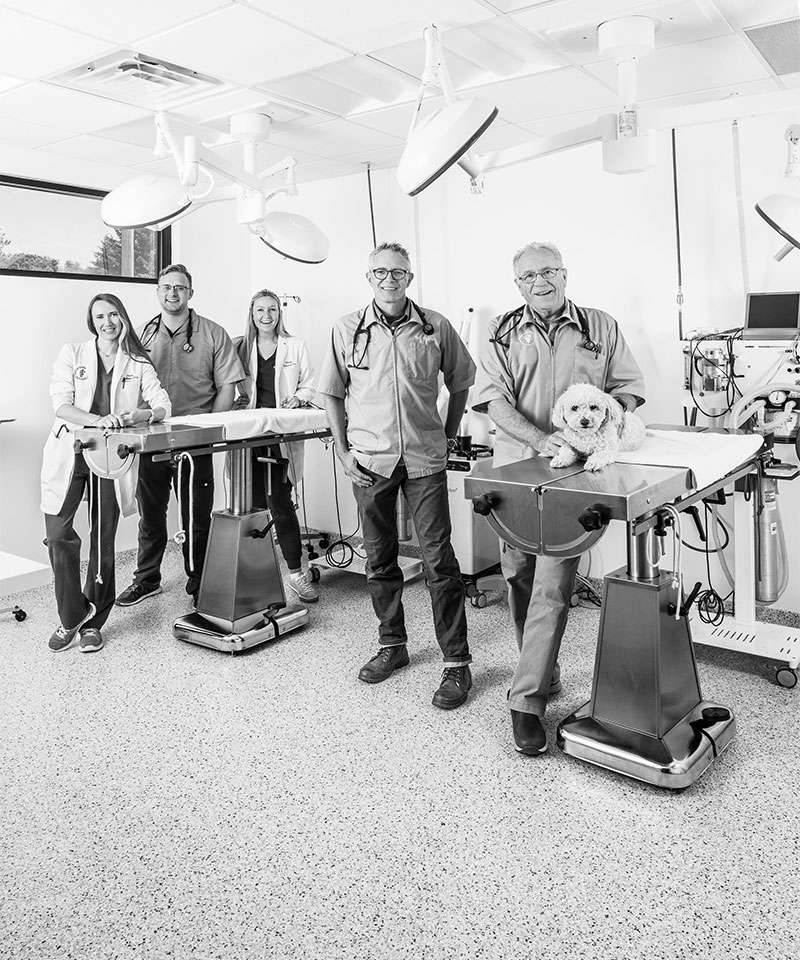
Surgery
We understand how frightened pet owners can be when their pet needs surgery—after all, we’re pet lovers, too. Therefore, we are committed to providing a transparent process, answering every question, explaining every detail, and ensuring you have the information and support you need to know that your pet is in capable, caring, and skilled hands.
- Pre-anesthetic testing — Blood testing allows us to assess your pet’s kidney and liver function. We may recommend additional tests, such as an electrocardiogram or chest X-rays, for senior pets.
- Advanced digital monitoring — Our digital monitoring includes pulse oximetry, heart and respiratory rate, blood pressure, temperature, and electrocardiogram (ECG).
- Dedicated hands-on care — Each pet receives hands-on monitoring throughout their entire surgery.
- Skilled surgeons — Our veterinarians stay up-to-date on the latest surgical techniques and technology to minimize complication risks and accelerate healing.
- Advanced surgical technology — Our surgical laser (i.e., CO₂ laser) replaces the traditional scalpel blade and minimizes bleeding, trauma, and post-surgical pain.
- Anesthetic record-keeping — Our team monitors and records your pet’s vital signs, which allows them to identify subtle abnormalities or trends and make the necessary adjustments.
- Ovariohysterectomy (i.e., spay)
- Castration (i.e., neuter)
- Mass removal
- Cystotomy (i.e., urinary bladder stone removal)
- Endoscopic procedures (e.g., foreign body removal, tissue biopsy)
- Laceration and wound repair
- Dental procedures

